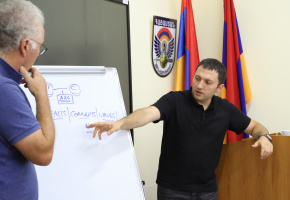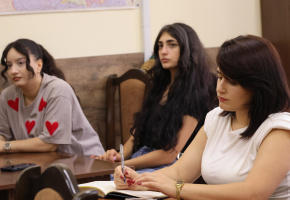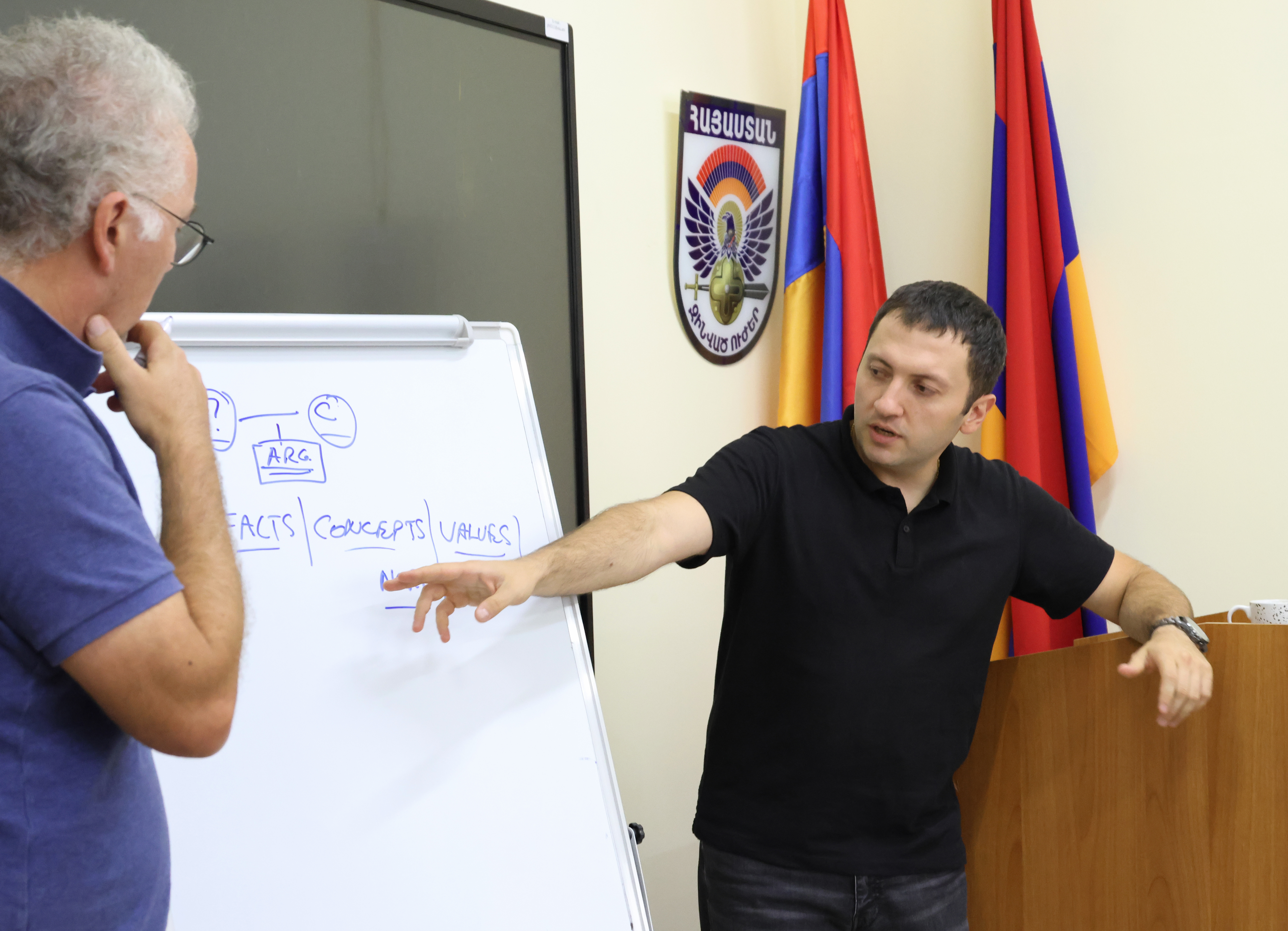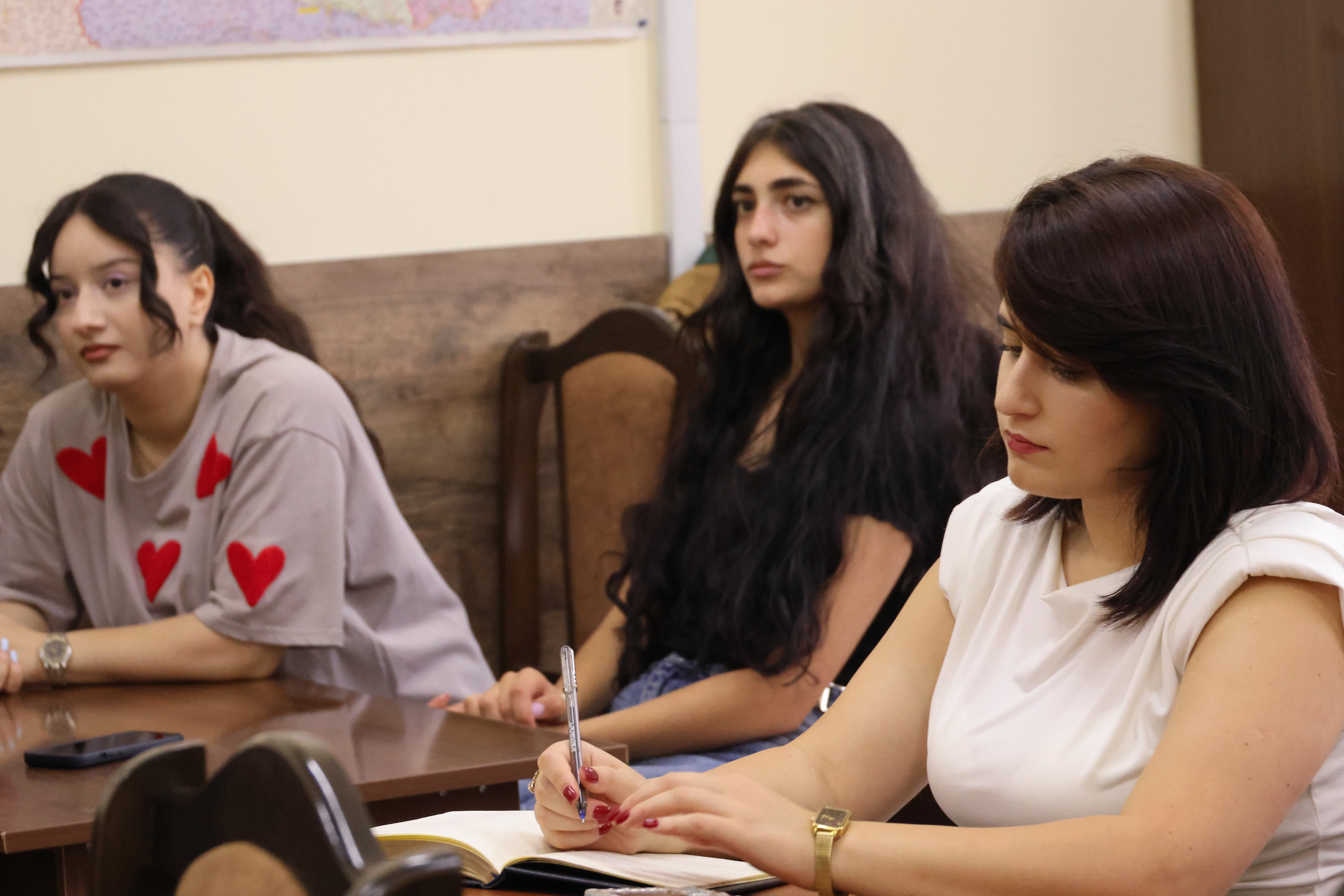September 19, 2025 | 09:57
Educational programs
Education
International cooperation
Three-day course "Thinking in Armenian About Generations" concludes
A special course titled "Thinking in Armenian About Generations," held under the Erasmus+ Teaching Staff Mobility Program, was successfully concluded at YSU Faculty of Philosophy and Psychology. During the course, in-depth discussions were held on issues concerning generations, as well as social and philosophical approaches.
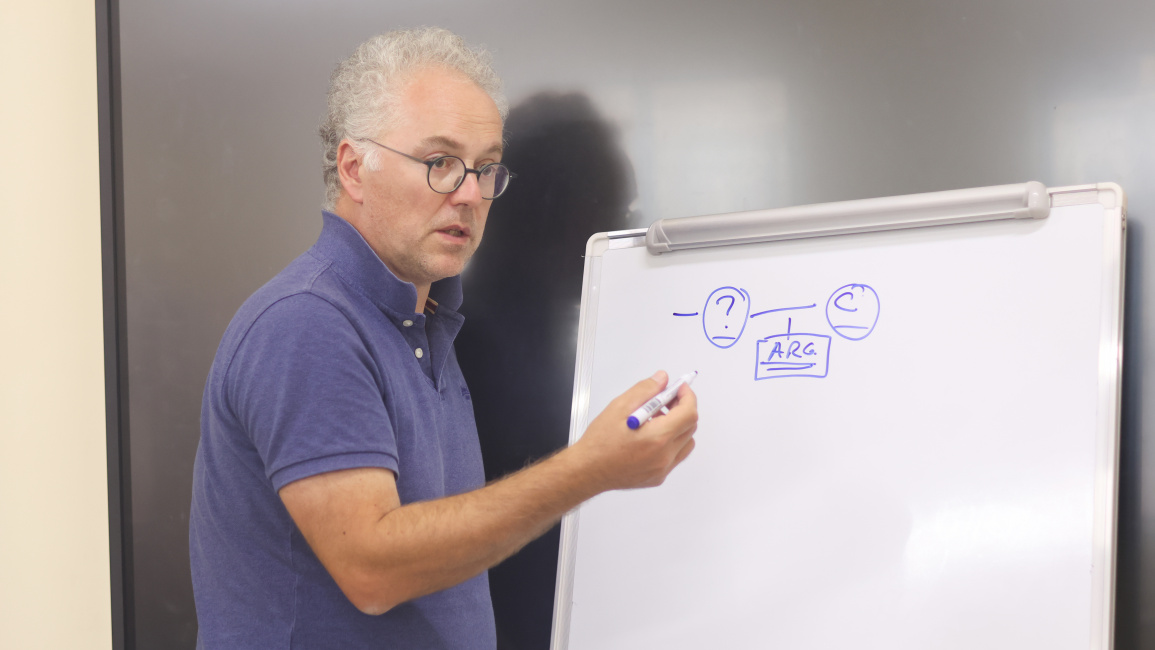
Professor Axel Gosseries, Director of the Institute of Philosophy at UCLouvain, Belgium, and Associate Professor Levon Babajanyan from the Chair of Social Philosophy, Ethics, and Aesthetics at YSU, presented excerpts from the Armenian translation of Gosseries’ book "What is Intergenerational Justice" to the students during the course.
Levon Babajanyan, who is translating the book into Armenian, noted that this marked the fifth collaboration with the invited lecturer. Gosseries specializes in the theory of intergenerational justice, which constitutes the core of his scholarly work.
"The first chapter of the book was presented during the course. I should emphasize that this is the first attempt to translate such a topic into Armenian. To foster deep discussions and to develop professional debates in Armenian, it was decided to conduct a three-day pilot course titled 'Thinking in Armenian About Generations.' The aim of this course was not only to present the translated material but also to discuss, speak, and critically reflect on intergenerational issues in Armenian," L. Babajanyan highlighted. He further added that the main topic of discussion was intergenerational justice, particularly addressing whether we bear a moral obligation towards future generations.
He affirms that it often appears as though the answer to this question is straightforward — that we indeed have a duty to care for future generations. However, philosophical analysis demands well-founded justifications that explain the basis of our moral obligations towards future generations and the origin of such duties.
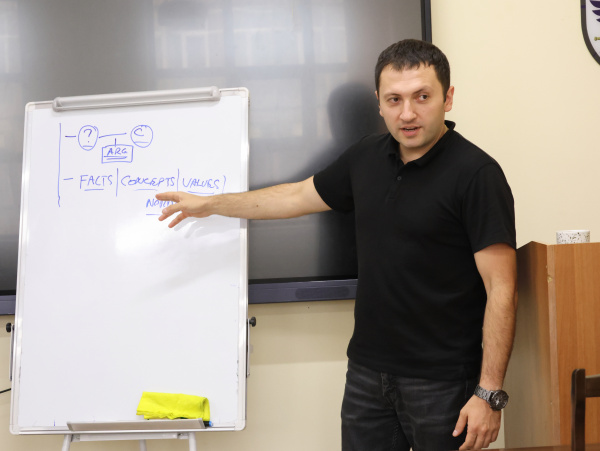
"An important subject of discussion during the course was also the extent of our obligations to future generations. For example, questions arise regarding how many resources we should pass on to future generations. Should it be equivalent to what we have received from previous generations? Or do we have an obligation to increase or decrease this amount, and so on? At the core of the course was the concept of justice between generations. The course clarified the methodologies and theoretical foundations necessary for reflecting and discussing intergenerational obligations. Each lesson began with a clear presentation of methodology, after which students were divided into groups and presented with real-life problems. In the second part of the lessons, students applied the methodologies and theoretical concepts they had learned to critically analyze these issues," he explained.
The themes covered a wide range of issues related to the concept of intergenerational justice, including pension systems, environmental challenges, reproductive policies, and other topics pertinent to intergenerational justice. Discussions of these issues using this methodological approach demonstrated how philosophical theories can form the basis for developing policies and finding practical solutions to social challenges.
The course allowed undergraduate and graduate students at the faculty to study these fundamental problems from diverse perspectives and to discuss issues of justice, duty, and responsibility.
Within the framework of this intensive three-day educational process, students participated in both theoretical analyses and practical discussions, which contributed not only to a multi-layered examination of the topics but also to a deeper understanding of the applied significance of philosophical and ethical knowledge.
